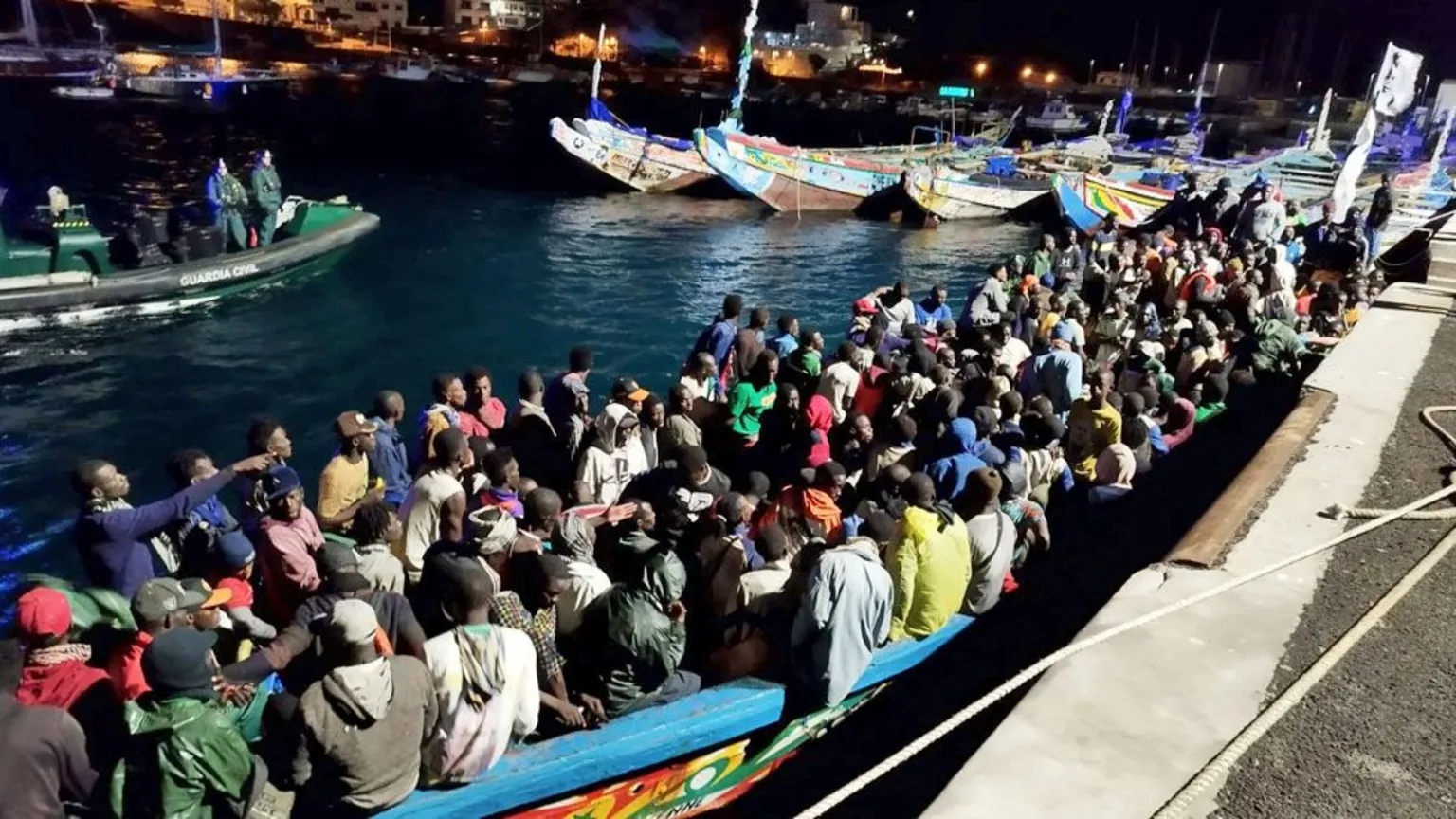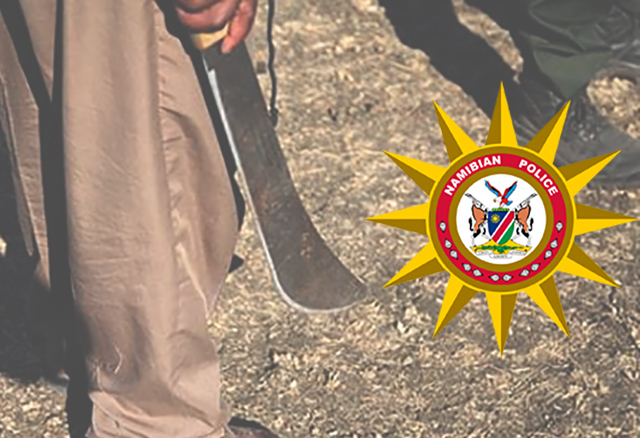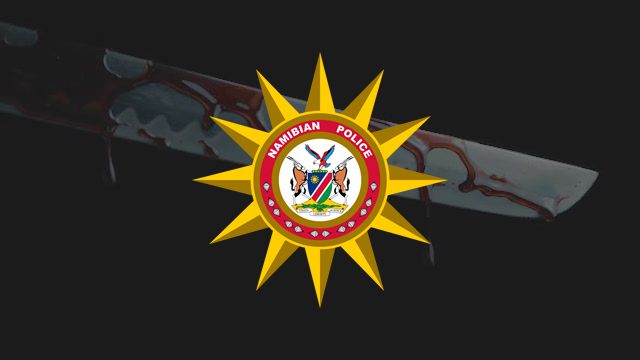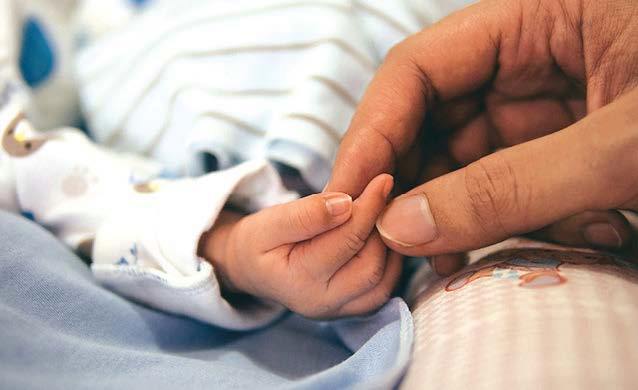BBC Africa Eye reporter Mame Cheikh Mbaye follows Mouhamed, a Senegalese farmer and father of two, as he risks his life on the dangerous sea passage from Senegal to the Canary Islands – a journey spanning over 1 000 kilometres, around ten times the distance of other routes crossing the Mediterranean.
As the number of migrant arrivals in the Canary Islands reaches a 30-year high, the BBC World Service’s investigative unit, BBC Africa Eye, gains rare access into the Atlantic crossing from West Africa to Spain’s Canary Islands, one of the world’s deadliest migration routes.
In ‘Dark Waters: Africa’s Deadliest Migration Route’, Mame Cheikh speaks with the families of those who lost their lives attempting the dangerous sea passage – some of the victims were as young as 17. He also gains access to the smugglers organising the migrant boats and meets with the Spanish authorities who are on the front line disrupting the criminal networks involved in this deadly trade.
With 70 000 migrants expected to attempt the journey this year according to Spanish Government estimations, ‘Dark Waters: Africa’s Deadliest Migration Route’ offers a harrowing perspective into the world of migrants hoping to escape poverty and conflict in Senegal and neighbouring countries.
Mouhamed, struggling to provide for his family, says: “I did any job you can imagine, but things didn’t get any better. If you don’t have money, you don’t matter. I am my family’s only hope, and I don’t have money.”
Working as a moto-taxi driver and borrowing money from friends, Mouhamed gathered US$1 000 to pay a smuggler for a place on a boat bound for the Canary Islands.
Five days into the journey, the boat was forced to return to Senegal due to an overheated engine and strong winds. Describing the traumatic journey, he says: “People started screaming, talking nonsense. Some fishermen said we had to hold them down, otherwise there would be a disaster. They’d either fall overboard or push someone else in.”
Mouhamed sustained serious health issues during the journey. He had to drink salt water, stood for most of the trip due to lack of space, and slept in water mixed with fuel.
Despite his traumatic experience, Mouhamed is determined to attempt the journey again.
Last year, four young women died at sea attempting the journey from a small fishing community in the north of Senegal called Goop. One of the victims, Mame Astou, was only 17 years old.
Her friend Sata, who was also on the boat, said that despite losing her friend, it hasn’t deterred her from trying again: “If you lose your life, at least you will not experience certain things—like the suffering of your mother, father and family.”
The investigation also provides insight into the deadly world of people smuggling, and the Spanish authorities working to disrupt the smuggling criminal networks.
In Toubab Dialaw, south of Dakar, the BBC was told by locals how the depletion of fish stock due to fishing by foreign vessels is pushing more local fishermen to attempt the dangerous journey to Europe as they claim they can no longer make a living from the sea.
Cheikhou Mbengue, a member of the same community, claimed that smuggling networks are exploiting the situation and paying locals with no experience, to sail the boats to Spain.
A smuggler told the BBC, under condition of anonymity: “If you take a big boat, one that can carry two to three hundred people, and each of them pays around US$500, we are talking about a lot of money.”
When challenged about his criminal responsibility in this deadly trade, the smuggler admitted: “It is a crime. Whoever gets caught should be imprisoned, but there’s no solution. You will see people who have died in the water, but the boats keep going.”
Since 2006, Spain has deployed a permanent force in Senegal to disrupt these smuggling operations alongside local forces. Lieutenant Antonio Fuentes of the Guardia Civil, who leads a team of intelligence officers, remarked: “The mafias that organise these trips have realised this is like drug trafficking, with little chance of detection. For them, a migrant is merely a commodity. They carry people as if they were drugs or weapons. They are simply victims.”
After years of working with migrants and refugees in the Canary Islands, Mame Cheikh Mbaye has since returned to Senegal, where he now runs a training centre to help young people find opportunities locally and avoid risking their lives at sea.
“For 10 years, I worked in the Canary Islands with migrants and refugees arriving from West Africa. As part of my job, I also educate young people about the dangers of the journey. I have witnessed the trauma of those who survive. By making this film, I want to put a face to the suffering, so the stories of those who drown at sea can be brought back to the surface.”
*BBC Africa Eye
Stay informed with The Namibian – your source for credible journalism. Get in-depth reporting and opinions for
only N$85 a month. Invest in journalism, invest in democracy –
Subscribe Now!








